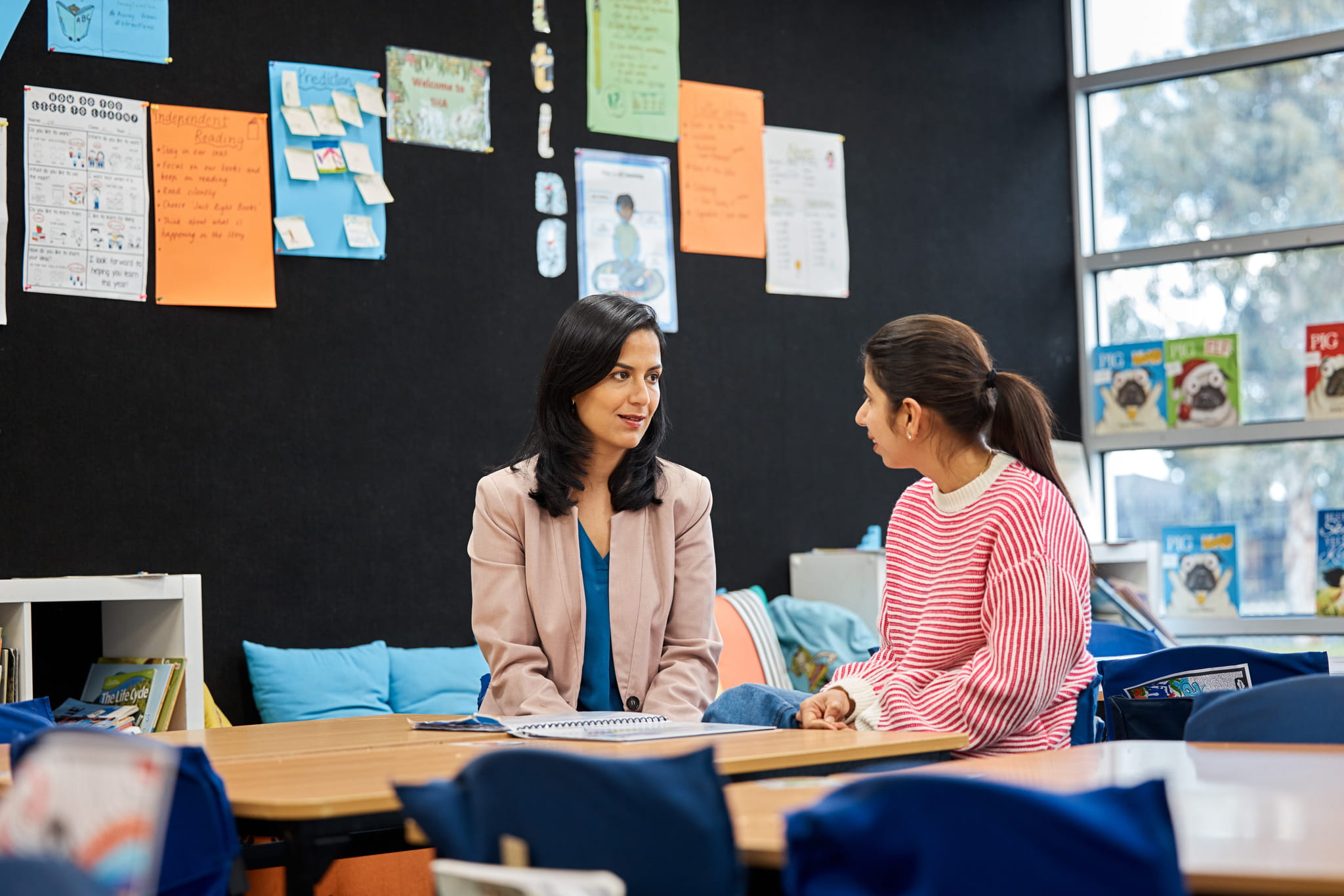Register to unlock free professional learning and resources
Access free evidence-based courses, practical tools, and support to build a mentally healthy learning community.

Why register?
- Access to all professional learning modules
- Certificates of completion for professional development
- Customisable educator wellbeing planning tools
- Exclusive resources for educators and learning communities
- Track your learning progress and revisit completed courses
“Be You isn’t a linear program that you tick and flick through. It’s a platter of resources that you are able to access when you need them.”
Frequently asked questions
-
I’ve forgotten my password. How do I reset it?
To reset your password, go to the Be You log in page.
Select ‘Forgot your password?’ and follow the prompts. Please use the same email address you registered with.
You may need to check your junk or spam folder for the password reset email.
If you have any further difficulties logging in, please Contact Us.
-
Why can't I see my completed Be You Professional Learning in my NESA or TQI teaching portal?
Module completions are uploaded to the TQI and NESA portal weekly. This process usually begins on a Tuesday and upload of all entries can take approximately 2 business days to complete. Please ensure you have added your TQI or NESA number and state or territory to the My Profile page. If you still can't see your completed Be You Professional Learning reflected in the TQI or NESA portal following the upload period, please Contact us.
NSW educators: In line with the NSW Education Standards Authority (NESA) changes to professional development requirements, Be You Professional Learning courses are no longer accredited by NESA.
-
Does the Be You Professional Learning support my professional development requirements as an educator?
Modules within the Be You Professional Learning domains meet the requirements for educator-identified professional learning across all states and territories. Each module is aligned to the Australian Professional Standards for Teachers.
The National standards page has more information about how the Be You Professional Learning aligns with national frameworks and standards.
ACT educators: the Be You Professional Learning is accredited with the ACT Teacher Quality Institute (TQI). Further details can be found on each module page. TQI registered teachers must add their TQI number and state or territory to the My Profile page to ensure that completed professional learning is recognised with TQI. TQI will be notified of all completed professional learning weekly.
For any other questions, please Contact us.
-
What is Be You Professional Learning?
Be You Professional Learning consists of 16 content modules grouped under 5 domains. Once an educator has registered with Be You, they can access the modules and track their progress via their dashboard.
Be You Professional Learning is for educators in early childhood, primary and secondary education. It is aimed at building skills, knowledge and confidence around mental health and wellbeing for children, young people and families.
Be You Professional Learning is free, online and can be completed at your own pace. It can support you to meet national, state and territory requirements that relate to mental health and wellbeing.
-
Where do I access my certificates for completed modules?
You can access certificates for any modules you have previously completed from your My module completion page. Scroll down to the bottom of the page to view your certificates.
You can also access your certificates at the bottom of each domain page.
Start your journey with Be You today
Access free evidence-based tailored tools, professional learning, and support to create a mentally healthy learning community.